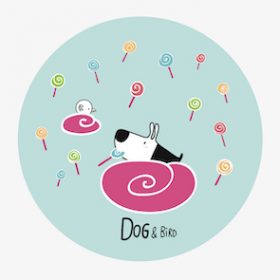Be Astonished
Enjoy this article from the archives:
There are so many new things to worry about these days that I can’t keep track of them (and I worry about that): the ongoing pandemic, climate change, and now war. And then there are the old fears: cancer, Alzheimer’s, what gravity will eventually do to my neck.
It’s enough to send a girl straight to the candy jar – which, according to a New York Times article (“When Economy Sours, Tootsie Rolls Soothe Souls”), is just where a lot of us are heading. The candy business is going strong despite the recession – or, rather, because of it: People are turning to Sugar Daddies and gummi bears to ease the pain of watching their 401(k)s disappear, their houses lose value, and their children’s college funds evaporate. They’re reaching for the fastest, easiest, most literal version of sweetness they can find.
One of my retreat students recently wrote me a letter: "I am worried sick. My husband lost his job six months ago and while I have a good job, the economy is so bad you never know what will happen. My cousin has Omicron and the Ukraine war is making me unbearably sad. I am still anxious about walking into the grocery store and getting Covid. My youngest son is applying to college and my daughter wants to go to graduate school, and I’m terrified that we won’t have enough money to help them. When I go to bed at night, all I can think about is losing our house. I live in such a state of anxiety about what might happen in the future that all I can do is hit the sugar – I buy chocolate kisses, a dozen donuts, and Fannie May Pixies to eat in my car on the way home from the store."
These are tough times. But the problem with turning to Tootsie Rolls to soothe the soul is that their sweetness lasts for only 30 seconds – and then it turns into self-flagellation. Before the Tootsie Rolls, you were worrying about your job and your future. After the Tootsie Rolls, you’re still worrying about your job and your future – only now you’re also worrying about your weight and the fact that you’ve just spent dwindling funds on candy. You haven’t made yourself feel better; you’ve made yourself feel worse. As my retreat student poignantly put it: “After the food is gone, I feel like the blob of the universe. The ultimate failure.” Not a good way to get through a day.
In the moment before the chocolate kisses go in the mouth, it seems as if you’ve discovered the answer to everything that ails you. But eating candy out of worry is not an act of kindness.
I know this territory well. I spent 17 years of my life diving into candy corn as if it were my last, best hope for salvation. And I’ve spent most of my life waiting for the other shoe to drop. When my parents went out on Saturday night and my brother and I stayed home with Mrs. Josephine Peck, our babysitter, I’d bombard her with concerns about my parents’ safety: Had they been in a car accident? Were they OK? Could she call the restaurant and find out? Even at 8 years old, I expected catastrophe. Eating treats erased the imagined disasters – for about 30 seconds.
After having devoted a lot of my life to being anxious about things that never come to pass, I’ve finally realized that worrying is like sitting in a rocking chair all day and thinking you’re actually going somewhere. One reason we worry is that we believe if we get there before life does, if we confront an event before it happens, we won’t be knocked over by adversity. If we prepare ourselves for the worst, we think, we’ll know what to do when it occurs.
But just as eating candy doesn’t sweeten our lives, worrying about the future does not prepare us for it. Worrying does, however, make the present utterly miserable. As we recite the mantra of what could happen, we are creating misery over and over – and suffering because of our conjuring. Every time I worry that Matt, my husband, will be in a car accident, I see the crash; I see him lying there; I see the ambulance, the emergency room. Because imagined events can trigger the same physiological responses as real ones – the racing heart, the rush of adrenaline, the surge of stress chemicals – I live the worst-case scenarios again and again. And while I am busy creating suffering for myself, I am ignoring what is in front of me that is whole, beautiful, and healthy. I leave my life as it really is and enter a nightmare world of my own making.
In a true emergency, you know what to do. If your house is burning down, you get out. If there’s a flood, you move to higher ground. If you’re diagnosed with cancer, you research treatment options. I’ve lived through three car accidents, one major earthquake, a near-death experience, and a financial disaster. Not one of them has ever been part of my Things-to-Worry-About litany, and yet in each circumstance, I knew exactly what was required of me, and did it. That’s how I came to realize that I needn’t have spent so much time and energy mentally rehearsing for things that might not happen – that I could have been using that time and energy to take in all the wonderful things right in front of me that I didn’t see because I was too busy worrying. Which led me to begin my Antidote-to-Worrying practice: noticing, on a daily basis, everything that I don’t have to worry about. Everything that is already fine, vibrant, thriving.
This is what I told my student: Every time you catch yourself worrying, ask yourself if there’s a danger you need to take care of immediately. If there isn’t (and usually there won’t be), gently direct your attention to all the things you don’t need to worry about. Begin making a mental list – and if you find yourself still worrying, write it all down. The length of the list will astonish you.
Even – or especially! – in these challenging times, try to spend at least 20 minutes a day focusing on what you do have instead of what you don’t. Allow yourself to see and appreciate the wind in the trees; a breathtaking sunset; your lively, loving family; the good friends offering support. In so many important ways these are still the good old days. You still have food to eat, clothes to wear, and kisses (of the non-chocolate variety) to give and receive.; The more you notice the unceasing supply of goodies that really matter, the less you’ll need the kind that give you a 30-second lift, then leave you miserable and wanting more. It doesn’t get much sweeter than that.
*********
No matter how sophisticated, wise, or enlightened you believe you are, how you eat tells all. If you want to understand and change your beliefs about abundance, scarcity, deprivation, relaxation, kindness, and what you deserve to give yourself, the world is on your plate.During our upcoming May 10-15 online retreat, you will learn precise and intuitive steps to channel the obsession with food, body and weight in life-affirming ways so that what you take on your plate and what you want most in your life are aligned. Register now and save $150 with our Early Bird rate. For more information, call 1-703-401-0871 today.
-->










